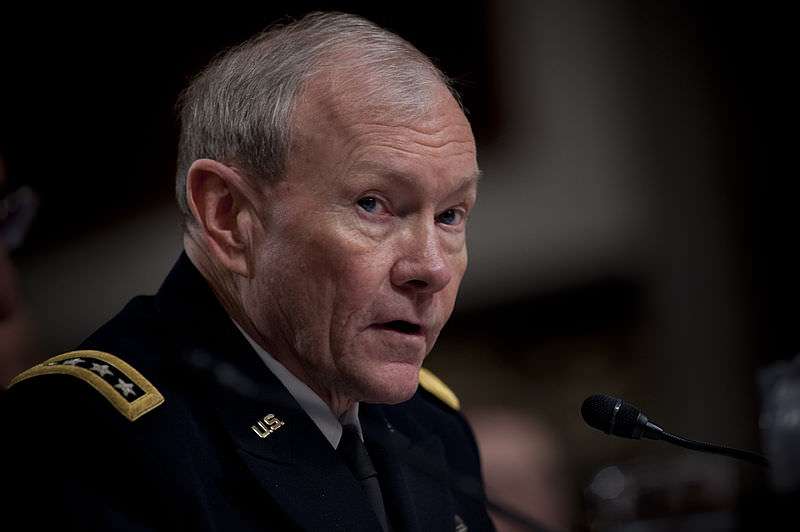Gen. Dempsey Outlines Military Options in Syria, Warns of "Deeper Involvement"


Gen. Martin Dempsey, the chairman of the joint chiefs of staff, has written a letter to Sen. Carl Levin (D-Mich.), chairman of the Senate Committee on Armed Services, outlining five possible military options in Syria.
The five options are:
- training, advising and assisting the opposition
- conducting limited stand-off strikes
- establish a no-fly zone
- establish buffer zones
- control chemical weapons
In his letter Dempsey warns that any engagement in Syria could cost billions of dollars and would be "no less than an act of war." According to Dempsey, the first option (training, assisting, and advising Assad's opposition) would be the cheapest option at around $500 million a year, while the other four options would cost about $1 billion a month each.
Read Dempsey's letter in full below:
The U.S. could soon be sending weapons to rebels in Syria. Today, Reuters reported that the Obama administration's plan to arm rebels in Syria would go ahead now that Congressional concerns have been addressed. Some members of Congress were understandably concerned that weapons sent to rebels in Syria could end up in the hands of the more unpleasant elements of Assad's opposition. According to Reuters, both the House and Senate intelligence committees have agreed to the administration's plans. Unsurprisingly, committee hearings on arming Assad's opposition are classified.
In his letter Dempsey says that going forward with providing rebels with assistance carries risks:
Risks include extremists gaining access to additional capabilities, retaliatory cross- border attacks, and insider attacks or inadvertent association with war crimes due to vetting difficulties.
Dempsey ends his letter saying that once military action is taken in Syria that the U.S. should be prepared for what comes next and that the U.S. should work within the law and, if possible, with allies. Dempsey also says that "deeper involvement is hard to avoid."
As the Obama administration goes forward with its plan to arm rebels in Syria (a plan a majority of Americans oppose) remember the following: the country's highest ranking military officer has warned of deeper involvement in the region and of the possibility that extremists could benefit from the U.S. providing assistance to Assad's opposition. Whatever the fallout of U.S. involvement in Syria, legislators cannot claim to have not been warned.


Show Comments (84)